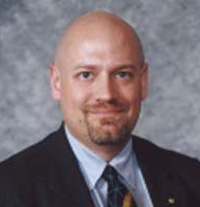found 4 items matching Hebrews 1.2
John 1.1 Caveat Lector (Reader Beware) [13 pages]
by Anthony Buzzard rated at 1.6 (6 votes so far)
In all probability John has been "turned on his head." What he intended was to stave off all attempts to introduce a duality into the Godhead. For John the word was the one God Himself, not a second person. The later, post-biblical shift from "word" as divine promise from the beginning, the Gospel lodged in the mind and purpose of the one God, to an actual second divine "person," the Son, alive before his birth, introduced a principle of confusion and chaos from which the church has never freed itself. This shift was the corrupting seed of later Trinitarianism. God became two and later, with the addition of the holy spirit, three. It remains for believers today to return to belief in Jesus as the human Messiah and in the One God of Israel, his Father, as the "one who alone is truly God" (John 17:3). God is one person not three.
Gabriel Was Not a Trinitarian [7 pages]
by Anthony Buzzard rated at 1.6 (6 votes so far)
I suggest that this Christological statement from the angel Gabriel be taken as the basis for identifying who Jesus is. It should be understood as a clarion call for unity, a rallying point for divided Christendom. What better way of calling Christians back to their first-century roots? The message is simple and clear. The Son of God of Gabriel's announcement is none other than a divinely created Son of God, coming into existence--begotten--as Son in his mother's womb.
Debate: James White vs. Patrick Navas [189:50]
by Patric Navas vs. James White rated at 2.6 (11 votes so far)
I recently listened to Patrick Navas' debate against James White over whether or not Jesus is God. The specific debate topic was: “The deity of Christ is taught in the following texts or families of texts: John 12:41 (cf. Isa. 6 and 53), 1 Cor. 8:5-6, Heb. 1, Col. 1:15-17, and the 'I am' statements of Jesus (John 8:24/58, 13:19, 18:5-6).” Navas argued for a one-God position whereas White defended the doctrine of the Trinity. These two are among the best advocates of their respective positions.
 James White is the Director of Alpha and Omega Ministries and the author of The Forgotten Trinity. White has debate dozens of people on many subjects, including Anthony Buzzard and Greg Stafford on the Trinity. He is tenacious, well-trained at debating, and probably one of the best Trinity defenders in the world.
James White is the Director of Alpha and Omega Ministries and the author of The Forgotten Trinity. White has debate dozens of people on many subjects, including Anthony Buzzard and Greg Stafford on the Trinity. He is tenacious, well-trained at debating, and probably one of the best Trinity defenders in the world.
 Patrick Navas is the author of Divine Truth or Human Tradition?: A Reconsideration of the Orthodox Doctrine of the Trinity in Light of the Hebrew and Christian Scriptures. I've listened to a few of Navas' debates and he exemplifies a Christ-like respect and gentleness combined with strength and confidence. If you would like to listen to my own interview with Navas on the subject of the Trinity, click here.
Patrick Navas is the author of Divine Truth or Human Tradition?: A Reconsideration of the Orthodox Doctrine of the Trinity in Light of the Hebrew and Christian Scriptures. I've listened to a few of Navas' debates and he exemplifies a Christ-like respect and gentleness combined with strength and confidence. If you would like to listen to my own interview with Navas on the subject of the Trinity, click here.
The two faced off on Chris Date's Theopologetics podcast.
part one: opening statements; John 12.41; 1 Corinthians 8.6
part two: Hebrews 1; Colossians 1; the "I Am" statements of John
Commentary on Hebrews 1.2 [3 pages]
by John Schoenheit, Mark Graeser, John Lynn rated at 1.0 (5 votes so far)
1. The Greek word translated “universe” (or “world” in many translations) is the plural of the Greek word aion, and actually means “ages.” There are other Greek words that mean “world,” such as kosmos and oikoumene, and when the Devil tempted Jesus by showing him all the kingdoms of the “world,” these words are used. This verse is referring to the “ages,” not the “world.”
books
These books, written by people from diverse backgrounds, express the simple truth that God is one. Some of them are more scholary while others are more autobiographical. In addition, a few of them are available to read online. If you would like more in depth treatment of christian monotheism, these books are the next step to take. Note: if you know of other books, not listed here, please leave us feedback.